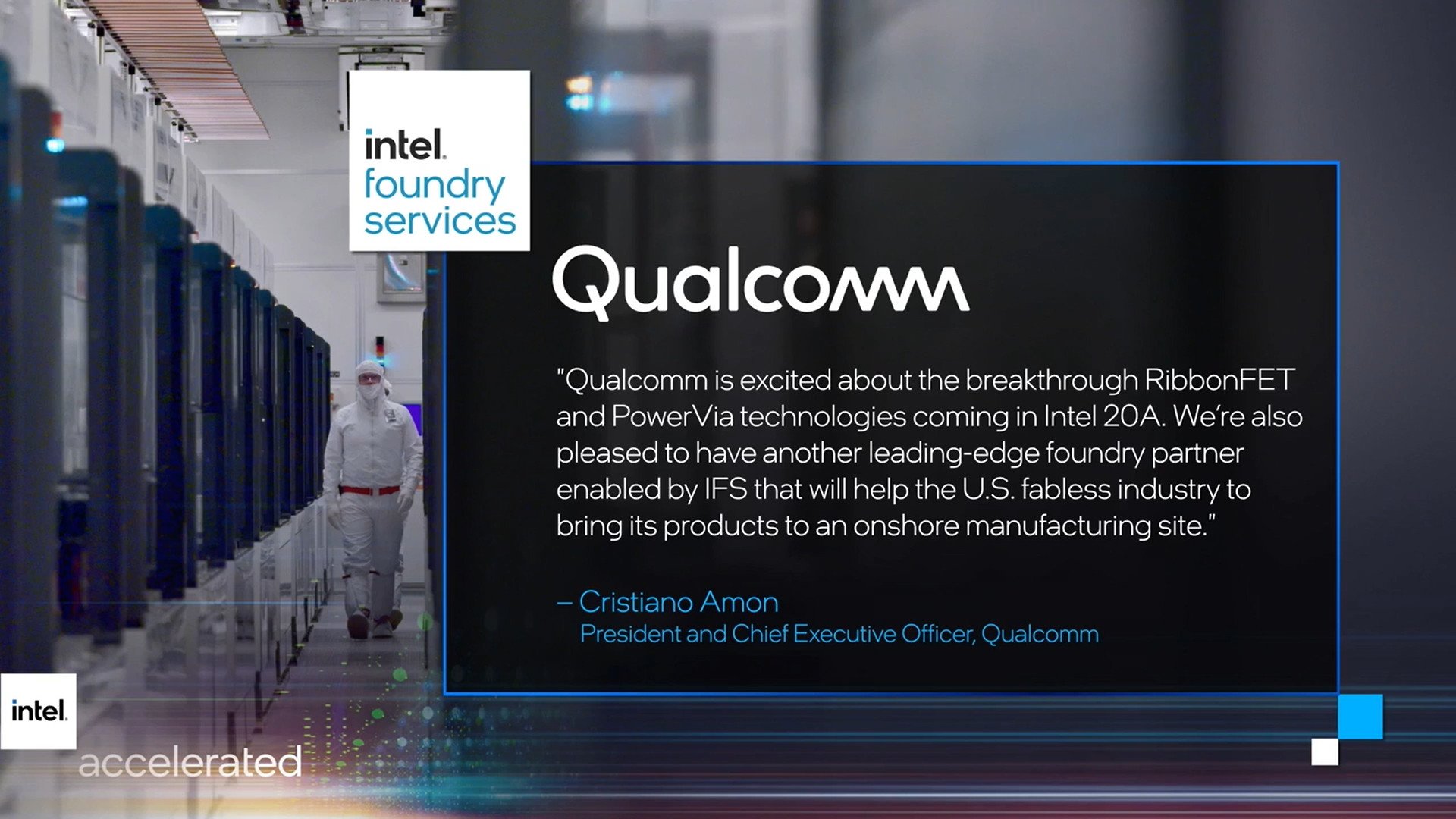Intel to build chips for Qualcomm as it fights to regain its lead
Qualcomm is one of Intel's biggest competitors, and that makes it an ideal situation.
What you need to know- Intel announced a new node process for building chips.
- The new 20A process includes Intel's first new architecture in 10 years as it fights to regain its spot as a top chipmaker.
- Intel will be using its new process to build future Qualcomm chips.
Intel has unveiled its plans to regain its spot as a top chipmaker and has managed to make Qualcomm an integral part of its roadmap.
As part of its plan to supercharge its chip business, Intel Foundry Services will use a new 20A node process that includes its first new architecture design in a decade. Intel says that RibbonFet promises faster switching speeds "while achieving the same drive current as multiple fins in a smaller footprint." It's coupled with the company's new PowerVia technology for backside power delivery to help make chips more efficient.
The new process node isn't expected to be ready until 2024. Still, Intel is confident that it will help the company regain its lead by 2025, and it has already lined up Qualcomm as one of its first and biggest partners to take advantage of the new process when it launches.
It may seem like an odd move for Intel to build chips for one of its biggest rivals, but this sort of thing happens all the time in the chipmaking world. Samsung and TSMC are examples of manufacturers that help build chips designed by other companies like AMD and NVIDIA. Qualcomm also taps Samsung to build its Snapdragon 888 chipset, which is used to power some of the best Android phones on the market.
Details of the partnership were scarce, including the kinds of Qualcomm products Intel will help build. It does, however, put Intel in an ideal spot to help build for one of the biggest designers of mobile SoCs, which should help as it fights to overtake the likes of Samsung and TSMC. Additionally, Intel also announced that it's partnering with AWS to provide packaging solutions for its data centers.
With a 2024 target for launch, we're still a few years out before we see the fruits of Intel's new 20A process, but we'll likely learn more about its plans with Qualcomm between now and then.

